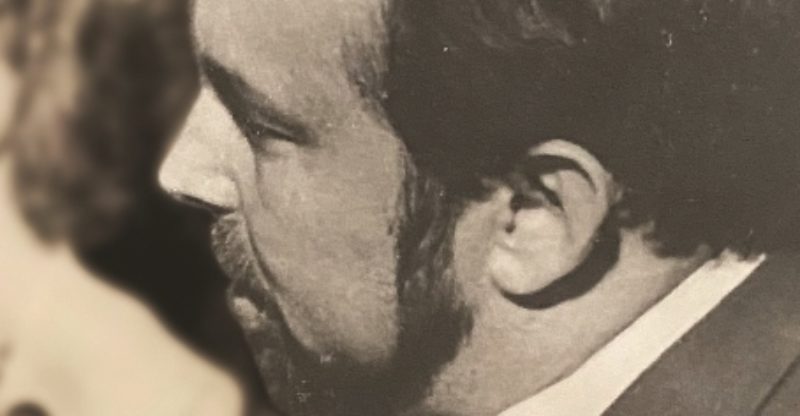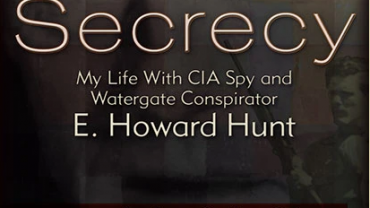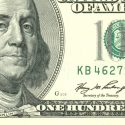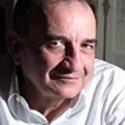The Journey 90. Steve Chain: The Twilight Zone Deaths (Landis Was a Wild Man)
Publisher RA “Kris” Millegan talks with Steve Chain about his new book, “Fly By Night: The Secret Story of Steven Spielberg, Warner Bros. and the Twilight Zone Deaths” (the 1982 helicopter crash that killed actor Vic Morrow, and two young children who had been hired illegally), and the cover-up that kept director John Landis out of jail and co-producer Steven Spielberg out of the headlines.
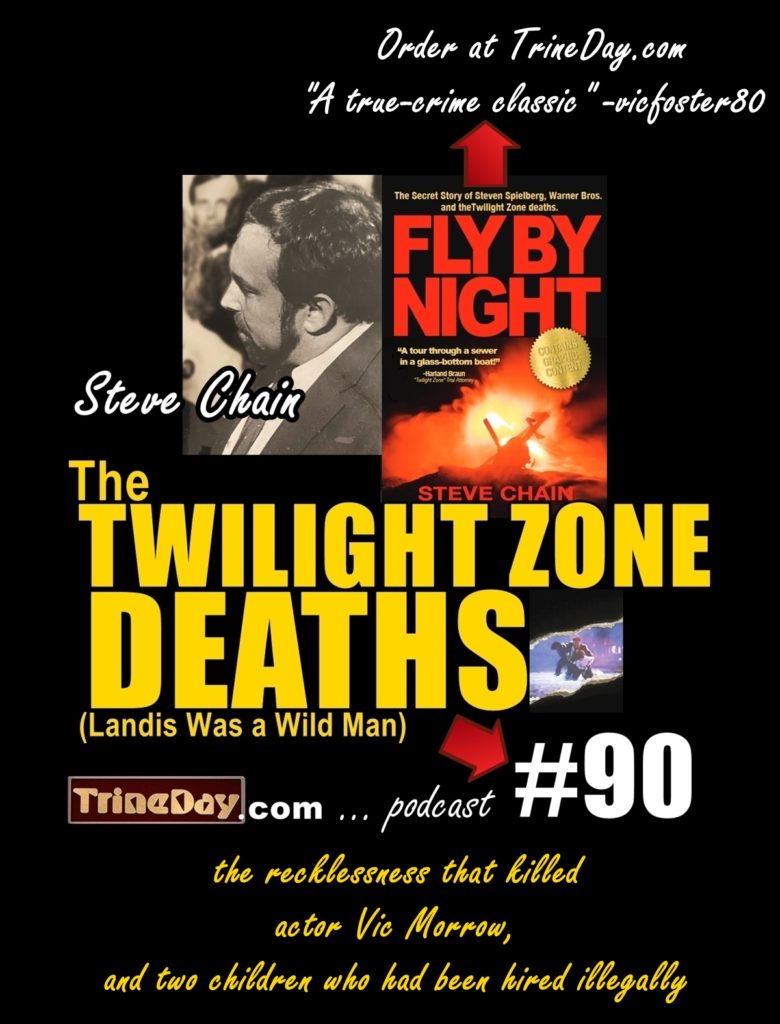
Kris: What led you to the “Fly By Night” story?
Steve: The whole affair was sort of a five-year affair from the helicopter crash and the death of its three victims to the trial itself. I really got involved with the trial. Like most Los Angelinos. Everybody was following it. Would a jury really convict an important Hollywood director [John Landis]? Other than tourism, the film industry is probably the largest employer here.
After five years, the trial finally started. There seemed to be so much strong evidence showing negligence and foreseeability and all of the other factors required to get a conviction in this kind of a case. And, of course, it was heart-wrenching to think of parents being on a set, believing their kids were going to be in a movie, and then watching them die in front of you. It was just an image that struck a very deep chord in me personally.
Kris: How come your book is coming out now [after so many years]?
Steve: I uncovered things that were deliberately covered up and accidentally covered up, due to negligence on the part of the investigators, that tells a completely story than that which was sort of codified in the court through the trial. When you read the book, you really can’t tell that you’re forty years later. It carries a very contemporary feel to it.
Most of the characters – Steven Spielberg, John Landis, many of the attorneys, Warner Brothers Studios – are still very much a central part of life in Los Angeles. Frank Marshall. Lucy Fisher is now co-president of the Producers Guild of America. This is the first time their story’s been told because it’s been covered up in the past.
The most central aspects of the case have never been revealed before. For example, the helicopter was not brought down accidentally by a faraway special effects guy who misfired. It was directly cued by John Landis himself. And this fact was deliberately concealed and hidden from the district attorney’s office, so no one was ever able to lay direct blame on him. [And he was acquitted.]
Kris: And there were people at the scene who didn’t own up to being there.
Steve: Spielberg’s leading associate at the time, Frank Marshall, was the highest ranking executive on the set, surpassing John Landis, who was the director. Marshall was on the set that night and many other nights during the production for several reasons, not the least of which was to keep control over John Landis, who at the time, even Warner Brothers and Spielberg recognized, was somewhat of a wild man and his practices needed to be supervised.
Frank Marshall was right there just moments before the helicopter crashed on the three victims and himself played a part in attempting to rescue the dying six-year-old girl, Rene Chen. He carried her body to the shore, and left the set before authorities arrived, making sure that the set was cleared as rapidly as possible, as well as escorting the parents, who were obviously central witnesses to what had happened, out of the reach of the authorities who were not even on the set yet. And this fact has never been revealed, before this book [“Fly By Night”].
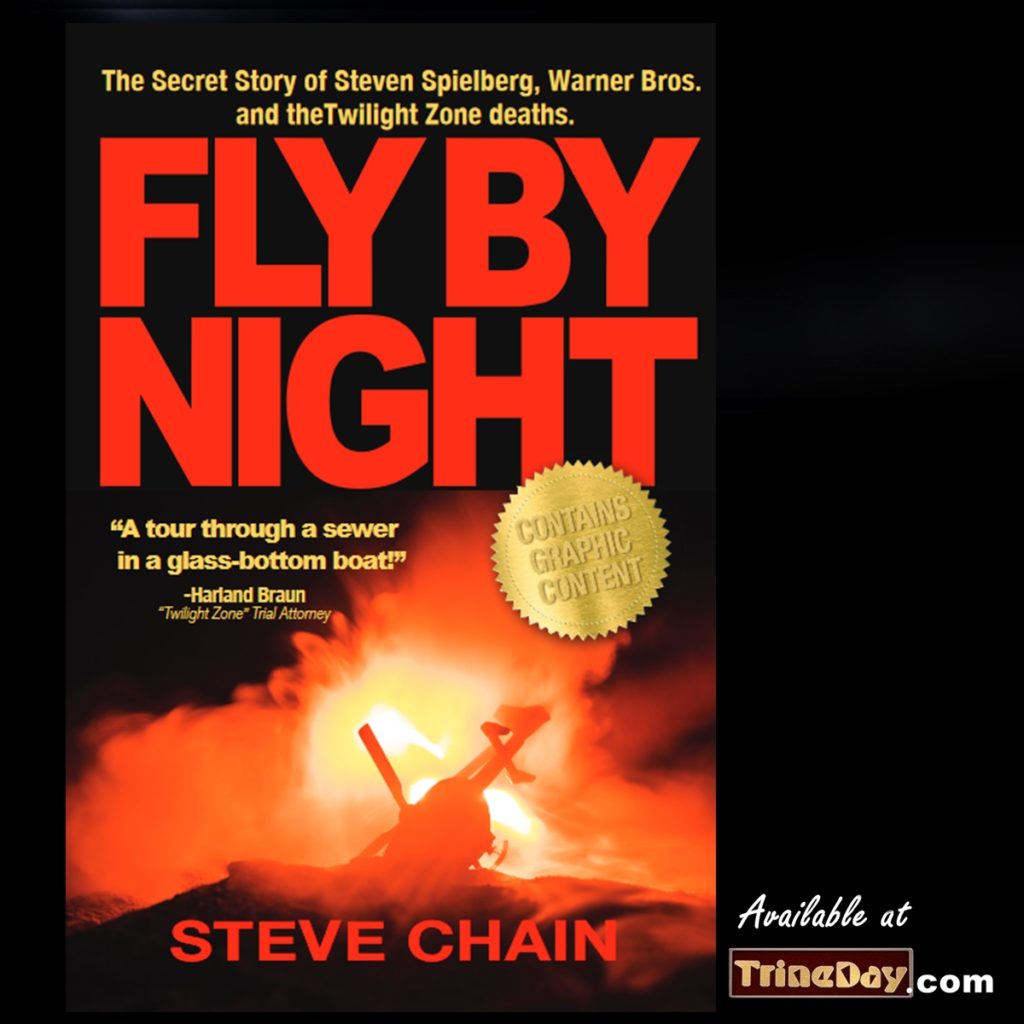
Kris: The death of those two children is one of the most egregious acts because [the film went] completely against all the rules, the laws and everything.
Steve: A lot of what happened to the children was never known to the prosecutor.
Kris: Landis wanted to out-do Spielberg.
Steve: The film was uniquely constructed and very low budget. Spielberg and Landis [co-produced it and] had a friendly rivalry. Each would do their own segment. Landis wanted to out-do Spielberg with this Grand Finale shot.
Kris: The gentleman who was the executive producer for the series “24” saw how they were using “24” for kind of propaganda purposes. And he thought, “Where’s the real stuff?” And he found my books and he tried to make some of them into movies. As soon as that happened all holy heck broke out.
People walked into his office and said, “You can’t make these movies.” He called me up and said, “They’re trying to get me fired. They told my boss that I’m out on Sunset Boulevard selling OxyContin at night.” And then another time he called me up and said, “There’s this white SUV chasing me and I can’t lose it.” And this guy was driving a Ferrari.
The last time he called me up, he said, “Well, I’ve got to go on a sabbatical for a couple of weeks.” I said, “Why?” And he said that somebody met his wife on a street corner in Hollywood and said, “If your husband doesn’t stop what he’s doing, we’re going to kill him, and then you. What are your children going to do?” He basically ended by saying, “I guess we’re just making Will Ferrell movies.”
You went to the trial, right?
Steve: I was there every day.





